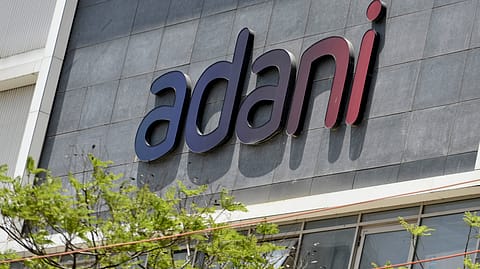Adani Enterprises calls off ₹20,000 crore FPO, to return money to investors
The Adani Group company says it aims to protect the interest of its investing community by returning the FPO proceeds.

Adani Enterprises, the flagship company of Adani Group, on Wednesday announced withdrawal of its ₹20,000-crore follow-on public offer (FPO), citing current market volatility. The development came after shares of the conglomerate along with other group companies witnessed sharp selling today, just one day after the successful completion of the FPO, which was the country’s largest secondary share sale till date. Shares of Adani Enterprises settled 28.45% lower at ₹2,128.70, down 31.5% as compared to FPO price of ₹3,112 per share.
“The Board of Adani Enterprises Ltd., (AEL) decided not to go-ahead with the fully subscribed Follow-on Public Offer (FPO),” the company said in a late night BSE filing.
“Given the unprecedented situation and the current market volatility the company aims to protect the interest of its investing community by returning the FPO proceeds and withdraws the completed transaction,” it said.
Gautam Adani, Chairman, Adani Enterprises said, “The Board takes this opportunity to thank all the investors for your support and commitment to our FPO. The subscription for the FPO closed successfully yesterday. Despite the volatility in the stock over the last week, your faith and belief in the company, its business and its management has been extremely reassuring and humbling. Thank you.”
Shares of Adani group companies have been under stress since last Wednesday following a report by the U.S.-based investment firm Hindenburg Research which alleged that key listed Adani firms have taken on substantial debt, including pledging shares of their inflated stock for loans, putting the entire group on precarious financial footing. The conglomerate also released a 413-page response to Hindenburg’s allegation which failed to soothe investors’ nerves.
Extending fall for the fifth straight session, Adani Group lost ₹1.73 lakh crore in market cap following a report that Swiss Finance giant Credit Suisse has stopped accepting bonds from Gautam Adani-controlled companies as collateral for margin loans to its private banking clients. Since the launch of FPO, total market cap of Adani Group fell from ₹19.21 lakh crore to ₹11.86 lakh crore, a fall of ₹7.35 lakh crore or 38.26%. Since the launch of FPO, Adani Enterprises has lost ₹1.43 lakh crore while Adani Power, Adani Wilmar, Adani Port, Adani Total Gas, Adani Transmission, Adani Green, ACC, and Ambuja lost ₹23,000 crore, ₹13,000 crore, ₹57,276 crore, ₹2.19 lakh crore, ₹1.16 lakh crore, ₹1.21 lakh crore, ₹8,833 crore and ₹33,338 crore, respectively.
Recommended Stories
“However, today the market has been unprecedented, and our stock price has fluctuated over the course of the day. Given these extraordinary circumstances, the Company’s board felt that going ahead with the issue would not be morally correct. The interest of the investors is paramount and hence to insulate them from any potential financial losses, the Board has decided not to go ahead with the FPO,” the company said in the filing.
“We are working with our Book Running Lead Managers (BRLMs) to refund the proceeds received by us in escrow and to also release the amounts blocked in your bank accounts for subscription to this issue,” it added.
“Our balance sheet is very healthy with strong cashflows and secure assets, and we have an impeccable track record of servicing our debt. This decision will not have any impact on our existing operations and future plans. We will continue to focus on long term value creation and growth will be managed by internal accruals. Once the market stabilises, we will review our capital market strategy. We are very confident that we will continue to get your support. Thank you for your trust in us,” Adani Enterprises said.